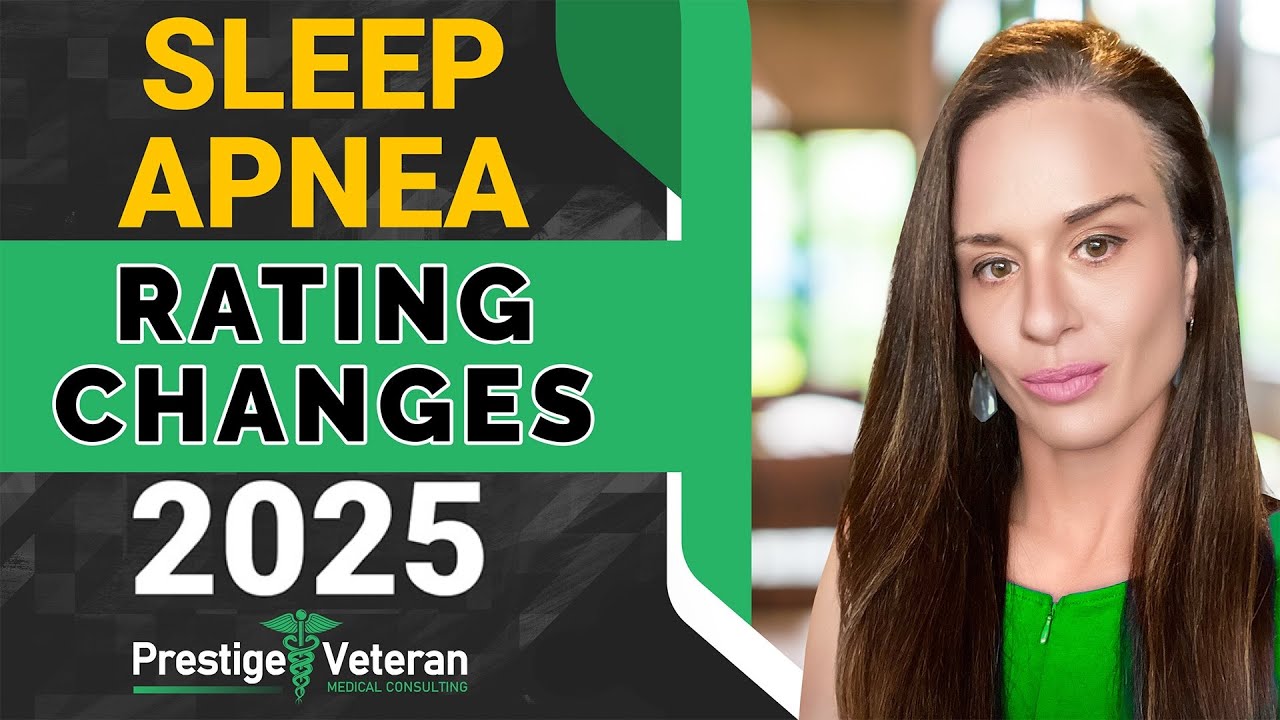VA Sleep Apnea Rating Changes Effective 2025: What Veterans Need to Know

Big changes are coming. The question is: Will your VA sleep apnea rating be affected?
If you’re a veteran receiving VA disability benefits for sleep apnea, you may have heard about the upcoming VA sleep apnea rating changes effective in 2025. And if you haven’t? Well, now’s the time to pay attention.
At ProVet Legal, we understand how crucial your VA disability benefits are to you and your family. The VA’s new rating system for sleep apnea aims to shift from automatic ratings based on CPAP usage to a system that focuses more on symptom severity.
So, what do these 2025 VA disability rating changes mean for you? Let’s break it down.
Current VA Disability Ratings for Sleep Apnea
Sleep apnea is one of the most prevalent conditions among veterans, with a much higher incidence rate compared to the general population. It can range from mild to severe, significantly impacting quality of life. The current VA disability ratings for sleep apnea are:
- 0%: Asymptomatic but with documented sleep disorder breathing
- 30%: Persistent day-time hypersomnolence (sleepiness)
- 50%: Requires use of breathing assistance device such as CPAP machine
- 100%: Chronic respiratory failure with carbon dioxide retention, cor pulmonale, or requires tracheostomy
The 50% rating, which requires use of a CPAP machine or similar device, is the most commonly assigned rating presently. A 50% rating can provide a significant boost to a veteran’s overall disability compensation.
Why is VA Changing the Rating Criteria?
VA periodically updates their rating schedule to better align ratings with the functional impact of conditions on veterans’ lives. In the case of sleep apnea, some veterans achieve good symptom control using a CPAP, so VA may feel a 50% rating overcompensates those individuals.
However, being tethered to a machine each night can still be quite limiting and burdensome. Quality of life impact needs to be considered, not just symptom relief.
What Are The Major Rating Changes for Sleep Apnea?
Effective sometime in early 2025 (likely April), the rating criteria for sleep apnea will change as follows:
- 0%: Asymptomatic sleep apnea with or without treatment
- 10-30%: Sleep apnea with incomplete relief of symptoms as shown by a sleep study, but not requiring a breathing device
- 50%: Sleep apnea with ineffective treatment or inability to use prescribed treatment
- 100%: Sleep apnea that is untreatable or treatment is ineffective resulting in end organ damage
The biggest change is that use of a CPAP alone will not automatically warrant a 50% rating. The 50% criteria is narrowed to only those who get incomplete relief from CPAP or cannot tolerate using CPAP.
More objective evidence, in the form of sleep studies showing incomplete relief of symptoms, will be required for the new 30% and 50% ratings. Subjective reports alone will likely not suffice.
How Will The Changes Impact Existing Sleep Apnea Ratings?
Veterans who are already service-connected for sleep apnea before the new rating criteria take effect should be protected under the old rating criteria. This is also true for any sleep apnea claims that are pending prior to the effective date of the change.
However, veterans need to be cautious about filing new claims for an increased rating after the change takes effect, as this could prompt VA to re-evaluate under the new rating criteria, possibly leading to a rating reduction. The prior rating should be protected, but VA is known to make mistakes in this regard.
What Should Veterans Do Before The Sleep Apnea Changes Take Effect?
If you suspect you have sleep apnea but have not yet filed a claim, do so as soon as possible before April 2025. Even if you haven’t had a sleep study yet, get your intent to file submitted to preserve the date.
If you have sleep apnea but were previously denied service connection, consider filing a supplemental claim with new and relevant evidence prior to April 2025.
If you are already service-connected for sleep apnea but feel your condition has worsened, weigh the risks and benefits of filing for an increased rating after the new criteria take effect. It may be best to seek advice from a VA-accredited attorney in this case.
Don’t let the VA take away the benefits you deserve. If you’re a veteran dealing with service-connected sleep apnea, now is the time to take action.
Get Help With Your Sleep Apnea Appeal
VA’s rating system is full of nuances and pitfalls, and the 2025 sleep apnea changes will further complicate the claims and appeals process. If your sleep apnea claim was denied or you received a lower than expected rating, don’t give up – you have options.
The accredited attorneys at ProVet Legal specifically focus on VA disability appeals. We can review your case to determine the best appeal option. Whether you need a higher level review, supplemental claim, or Board appeal, we know how to build the strongest case using the latest case law and medical research.
You served our country – now let us serve you. Contact ProVet Legal today for your case evaluation. Don’t let the VA give you one more restless night.
